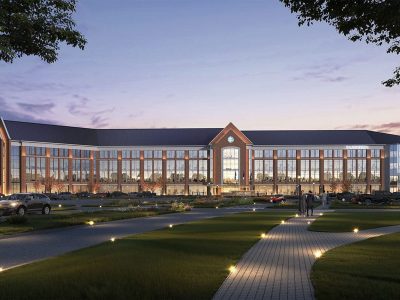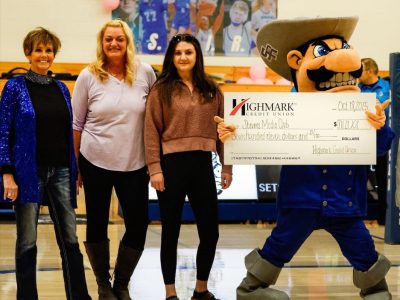RAPID CITY, S.D. (Sept. 15, 2025) – South Dakota Mines researchers will soon have access to a nearly $700,000 piece of cutting-edge technology funded by the National Science Foundation (NSF), aimed at accelerating discoveries in biotechnology, medicine, and clean energy.
The BioLector XTM microbioreactor system, expected to be installed by the end of the semester in the Karen M. Swindler Department of Chemical and Biological Engineering, will allow researchers to grow and monitor up to 48 miniature microbial cultures in real time. Traditional systems can only test one or two microbes at a time using large liquid volumes.
“What makes this system special is its ability to replicate the conditions used in large-scale industrial fermentation, like stirring, air flow and nutrient delivery, but at a very small scale,” said Tanvi Govil, Ph.D., assistant professor and principal investigator for the NSF award.
Each culture in the new system uses just one milliliter of liquid, compared with liters in older bioreactors. That shift reduces costs, waste and research timelines.
“This not only reduces material and operational costs but also helps de-risk scale-up by generating high-quality, real-time data early in the process,” Govil said. “It also provides detailed, continuous data that traditional shake flasks or older systems simply cannot.”
Govil and Mines professor Rajesh Sani, Ph.D., recently collected thermophilic cyanobacteria samples in Yellowstone National Park for another NSF-backed project. With the new system, the team can test all strains simultaneously, speeding research.
The microbioreactor will support studies across synthetic biology, bioremediation, biomedical engineering and renewable energy. Researchers will be able to design and test new systems faster, identify microbes that clean up pollutants and optimize organisms that produce biodegradable plastics, medicines, biofertilizers and clean fuels.
The system will also serve as a teaching and training tool, from engaging K–12 students in science demonstrations to preparing Mines students and future biotech professionals with industry-standard technology. It will be available to faculty across multiple departments and expand collaborations with Oglala Lakota College, South Dakota State University and others.
“This award reflects the collective effort of several faculty members who envisioned this capability, and we are deeply grateful for their support,” Govil said.
With this investment, Mines scientists in Rapid City and the Black Hills will be equipped to pursue discoveries that could shape industries and strengthen South Dakota’s STEM workforce.


